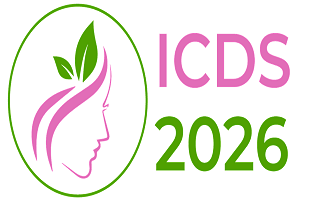3rd International Conference on
Dermatology & Skincare
April 16-17, 2026 | Chicago, USA

Address: 9300 Bryn Mawr Avenue, Rosemont, IL 60018, United States
ICDS 2026

Augusta University, USA
Abstract:
Background :
Melanoma is a complex disease with various clinical and histopathological features that impact prognosis and treatment decisions. Traditional methods of melanoma prognosis involve manual examination and interpretation of clinical and histopathological data by dermatologists and pathologists. However, the subjective nature of these assessments can lead to inter-observer variability and suboptimal prognostic accuracy. AI, with its ability to analyze vast amounts of data and identify patterns, has emerged as a promising tool for improving melanoma prognosis.
Methods:
A comprehensive literature search was conducted to identify studies that employed AI techniques for melanoma prognosis. The search included databases such as PubMed and Google Scholar, using keywords such as "artificial intelligence," "melanoma," and "prognosis." Studies published between 2010 and 2022 were considered. The selected articles were critically reviewed, and relevant information was extracted.
Results:
The review identified various AI methodologies utilized in melanoma prognosis, including machine learning algorithms, deep learning techniques, and computer vision. These techniques have been applied to diverse data sources, such as clinical images, dermoscopy images, histopathological slides, and genetic data. Studies have demonstrated the potential of AI in accurately predicting melanoma prognosis, including survival outcomes, recurrence risk, and response to therapy. AI-based prognostic models have shown comparable or even superior performance compared to traditional methods.
Keywords: Artificial intelligence .Melanoma, accuracy ,prognosis prediction ,image analysis .personalized medicine
Limitations and Challenges:
Despite the promising results, several challenges and limitations exist in the field of AI in melanoma prognosis. Data availability, standardization, and quality remain significant concerns. Ethical considerations, interpretability of AI models, and regulatory aspects also need careful consideration. Additionally, the lack of prospective validation studies and real-world implementation hinder the translation of AI into routine clinical practice.
Conclusion
In conclusion, AI techniques have demonstrated great potential in improving melanoma prognosis. While challenges and limitations exist, ongoing research and collaboration can address these issues. The integration of AI into routine clinical practice has the potential to enhance prognostic accuracy, guide treatment decisions, and ultimately improve patient outcomes in melanoma.
Biography:
Shohreh Ghasemi, an Iranian oral surgeon and educator, serves as an adjunct assistant professor at Augusta University’s OMFS Department. With a focus on facial cosmetic surgery, she has organized conferences, conducted extensive
research, and directed IFACE Academy, fostering advancements in oral and maxillofacial surgery. Ghasemi’s educational journey includes degrees from Sharjah University and Manchester University, complemented by diplomas in Laser
and Skin Physics and fellowship training in facial cosmetic surgery. Her career spans roles as a practitioner, educator,
and researcher, contributing to institutions like Tehran University and Augusta University. Recognized by the US State
Department for her community college initiatives, Ghasemi’s dedication to innovation earned her a spot among Entrepreneur magazine’s top 10 cosmetic surgeons. Her influence extends globally, shaping the future of oral and maxillofacial surgery through her multifaceted contributions.
